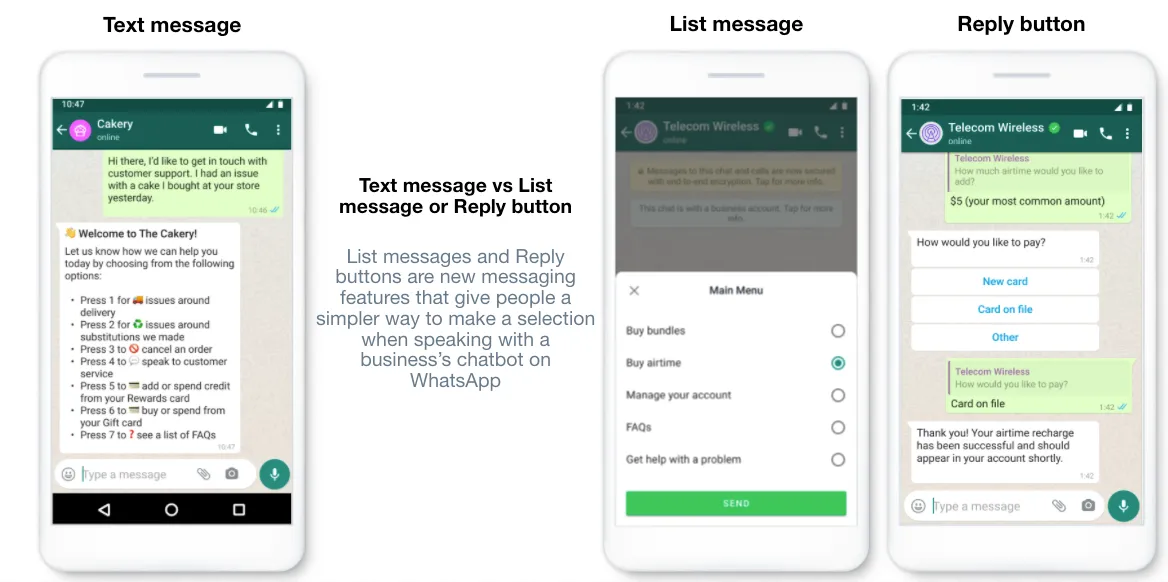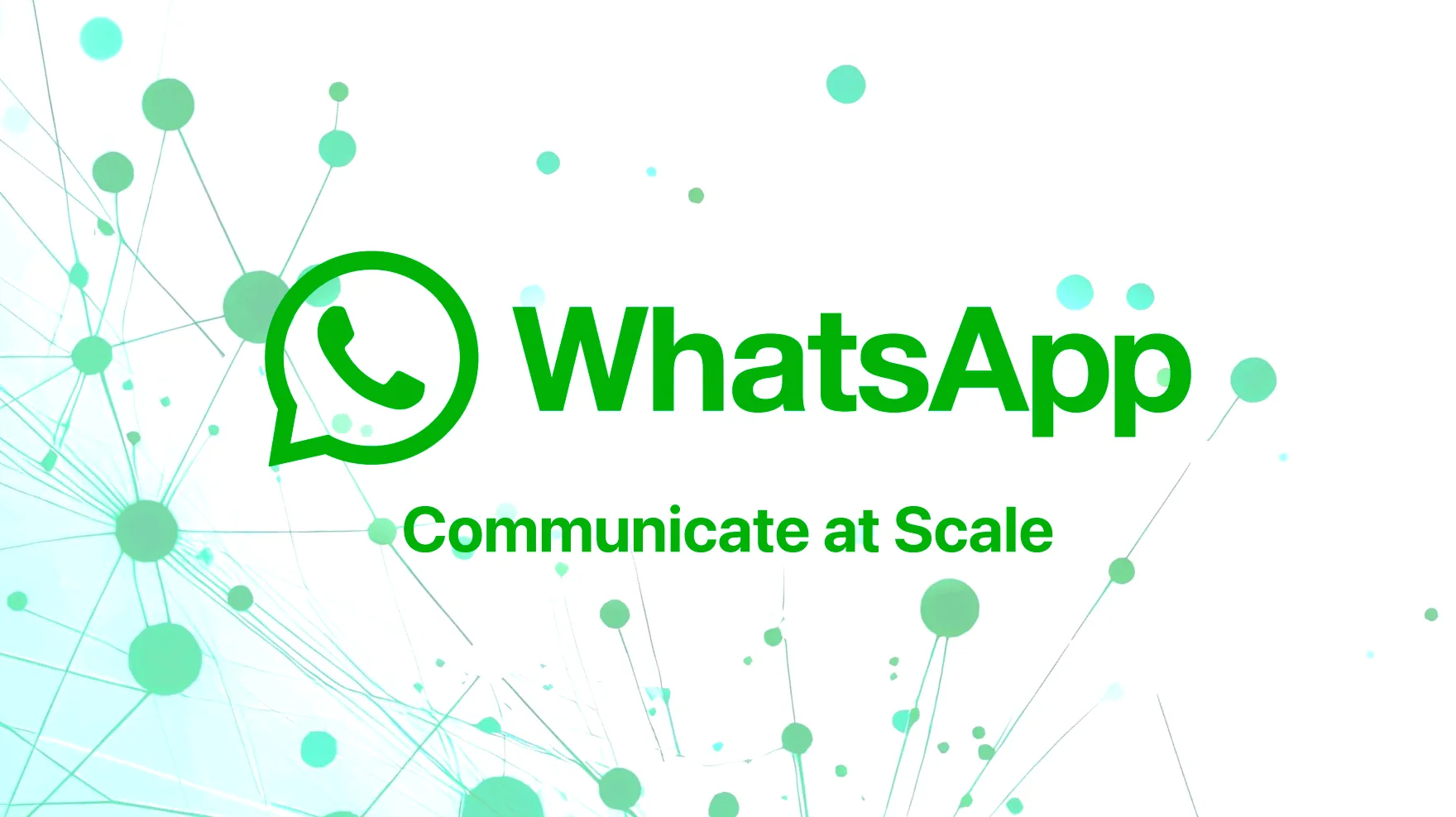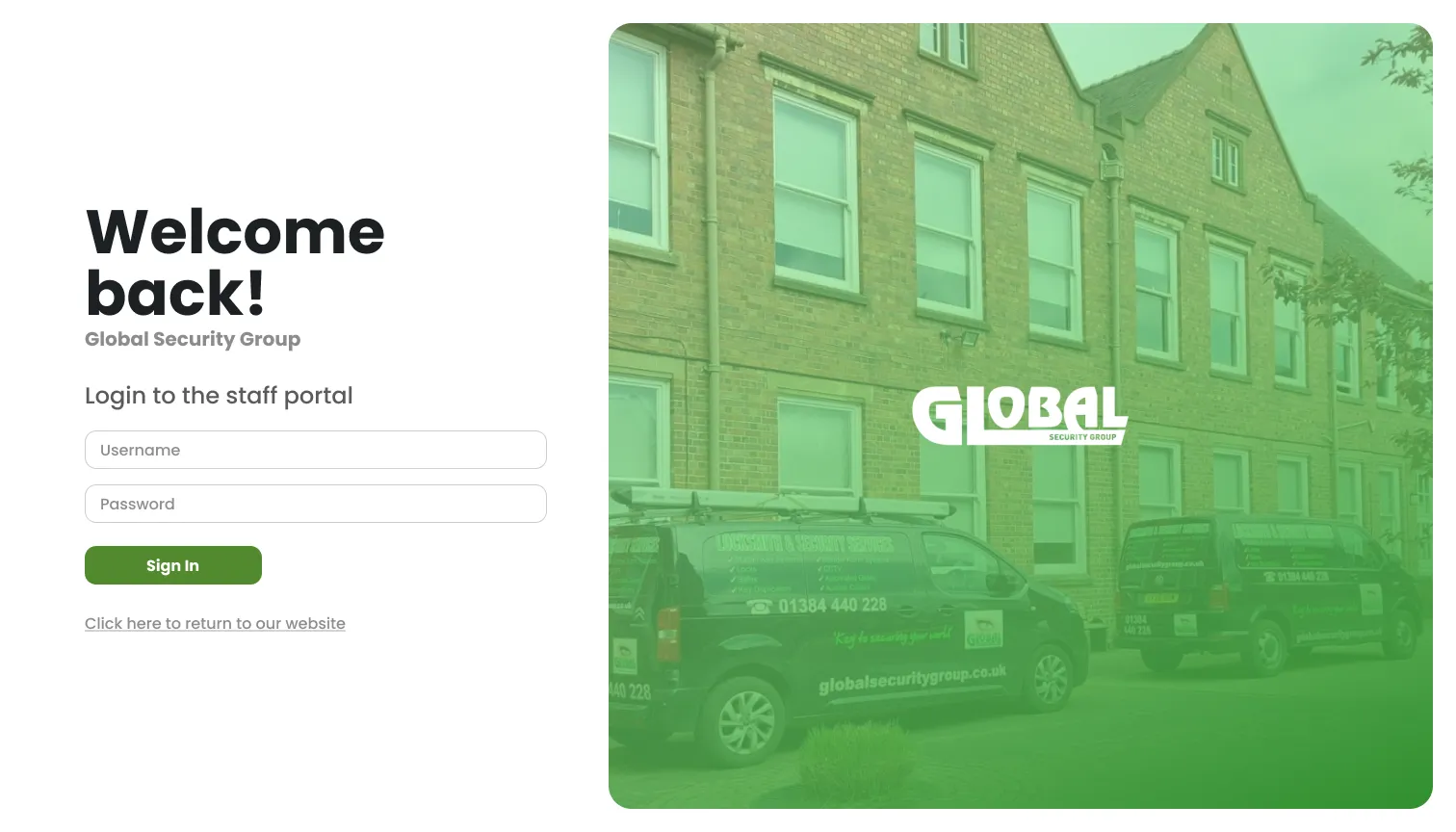What is WhatsApp?
I’m sure you’re already familiar but for those who aren’t, WhatsApp is a popular instant messaging and VOIP service owned by Meta. Used worldwide for communication as a secure and reliable alternative to SMS, it’s got over 2 billion users (Statista). That makes it the most popular messaging app in the world! In this article, we’ll talk about some ways that WhatsApp integration can provide new avenues of growth and automation for businesses.
Why is communication key?
Communication is a vital tool for organisation and decision making, as well as pretty much every other facet of business. The next step is effective communication. When we can provide useful data with clarity and purpose, we’re at the top of our game when it comes to maximising strategy and productivity.
What’s this got to do with WhatsApp? A lot of businesses already use WhatsApp to communicate internally (we do too!), but integrating with business software opens up new doors for effective communication. So let’s take a look at some of the key benefits.
Automated messaging
Information which is worth delivering, is worth delivering in a timely and efficient manner. Things like status updates, reminders and more can be automated (even transaction info when you integrate with accounting software 😉). If you receive a high volume of messages, or your business has a lot of moving parts, streamlined and scalable communication can relieve some of that pressure, helping to keep things ticking over nicely.
CRM integration
This doesn’t have to be internal either! If you use a CRM, notifying customers can improve engagement and retention. WhatsApp also lets us establish two-way communication, allowing customers to respond to messages and ask questions. For example, we might decide to use WhatsApp for support ticket submissions, before processing the message and notifying the relevant member of the team (directly to their smartphone!).
Broadcasting messages to a wide audience is also an effective tool for mass communication. Whether that’s for a marketing campaign, customer announcement or any other use case you can think of.
Customisation and interactivity
The WhatsApp API is pretty flexible. Rich media, like images, videos and documents are all supported, as well as location data, contact information and more. Interactive messages like lists and auto-reply buttons can further personalise communication. These forms of user interaction have been shown to improve comprehension, conversions and response rate, making them effective methods of customer engagement (when done correctly).

There are plenty more benefits out there, but after touching on the highlights, it’s time to talk more about what we mean when we say ‘software integration’.
Integrating WhatsApp into custom software
To integrate software tools together is to join lots of little parts into a big, well-oiled machine. What that machine does and the value it creates is ultimately up to you and the big picture you’re aiming for. At Novatura, we’re experts at implementing those integrations and creating bespoke software solutions that scale.
WhatsApp is a great example, because there’s so many ways it can be used to create value. Enhancing the way we communicate with each other and our audiences opens up the doors to some really clever automation, and better ways to do business. So, whether you’re looking to improve productivity internally or engage better with customers, we’d love to hear what you come up with (and help you implement them of course!).
What about other third-party services?
Apart from WhatsApp, there’s a lot of other third-party services out there. They all work very similarly, and can be joined in so many different and useful ways subject to a couple of requirements:
- The service must have an extensive API
- The service must have a clear use case for your business
The good news is that, in most cases, these requirements are met! For example, we can work with the following platforms:
- Microsoft Office 365 (Sharepoint, Outlook, etc.)
- Google Workspace (Gmail, Drive, etc.)
- Xero
- Social Media Platforms (Instagram, X, Facebook, etc.)
- Stripe
- Shopify
- And many more!
Our typical projects involve combining multiple services together, making a whole that’s greater than the sum of its parts. An example of this would be platform where staff sign in using Microsoft and add upcoming jobs to a calendar. Then, the system automatically sends WhatsApp messages to relevant staff members and customers, updating them with information such as date, time and location. There’s really an endless list of possibilities!
Get in touch today to discuss your requirements.


